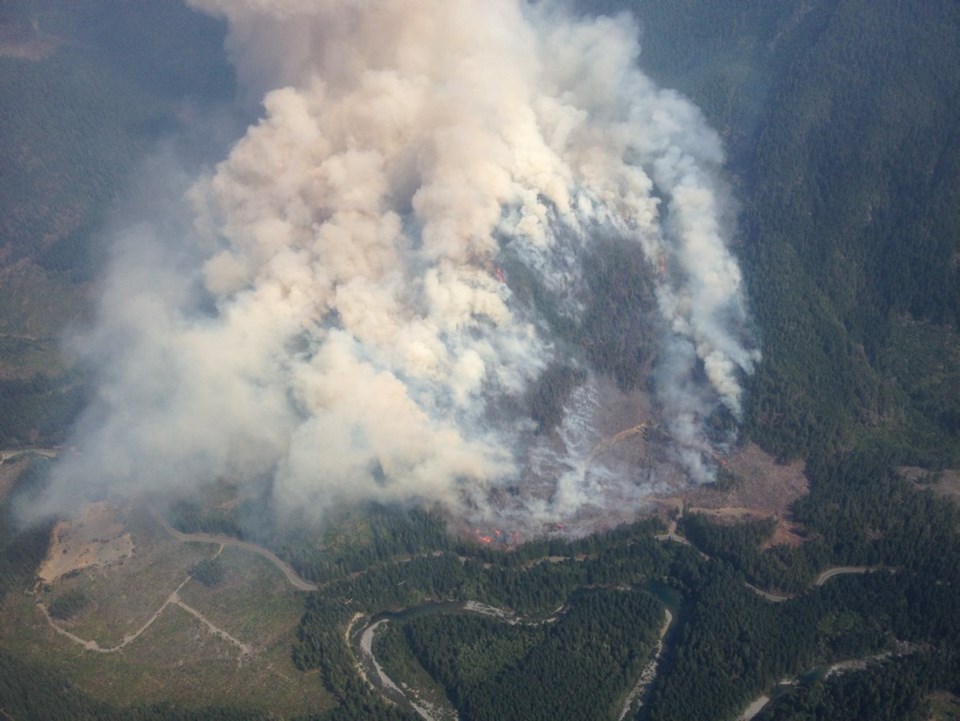“Some of that is just being able to actually see the thing finally for the first time in a long time,” said Donna MacPherson, fire information officer for the Coastal Fire Centre. Heavy smoke had prevented fire crews from getting a full view of the blaze.
Winds of up to 40 kilometres an hour caused the fire to grow, as well, MacPherson said.
The good news is that the fire is now 20 per cent contained, she said. It is suspected to be human-caused.
The fire is burning about 11.5 kilometres northeast of Port Renfrew and 27 kilometres southwest of Cowichan Lake, but Port Renfrew has had considerably less smoke.
A smoky skies advisory, issued by the Ministry of Environment in collaboration with Island Health, remains in effect for Port Renfrew and the Cowichan Valley, including Shawnigan Lake, Mill Bay and Cobble Hill.
“The smoke will still drift periodically northward, which is into Cowichan Lake,” MacPherson said.
The Pacific Marine Road between Port Renfrew and the town of Lake Cowichan remains closed, as do the Lizard Lake and Fairy Lake recreation sites.
No rain or thunderstorms have hit the area of the fire, MacPherson said.
“We got lightning on the north part of Vancouver Island near Strathcona Park, but we didn’t get any in the south.”
The number of firefighters was at 74 Saturday, up from 60 on Friday.
The fire was reported about midnight Tuesday and grew quickly from about five hectares to 150 hectares. Heat, the amount of logging debris and difficult, steep terrain contributed to the initial spread.



